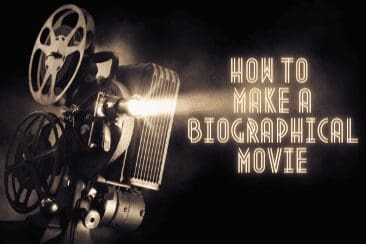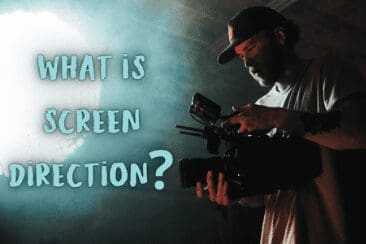If you’re an aspiring director looking to get into filmmaking, making a short film can be a great start! It can seem like a daunting task, but once broken down, it’s not as complicated as you might think! With affordable gear and lots of people eager to get involved, it really couldn’t be simpler. In this article, we’ll explain firstly what a short film is then the process in writing and making your short film. Hopefully, you’ll leave confident that you know the ins and outs of filmmaking!
What Is A Short Film?
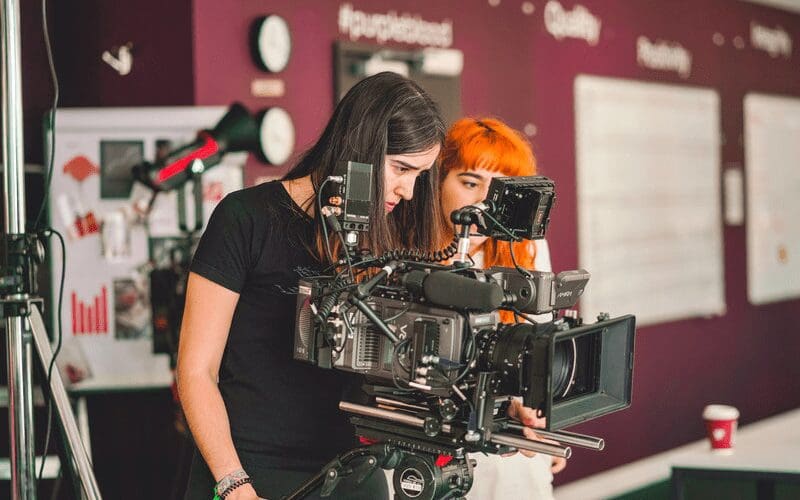
First things first: what is a short film? Think of it as a business card for a filmmaker. It’s a concise visual narrative, usually between 5 and 30 minutes, aimed to showcase the filmmakers’ ability and style. Sometimes, a short film is basically a feature film condensed. So it has a beginning, middle and end. Other times, it can be a little more abstract and be, perhaps, just one section of a story – like a chapter. They’re a great way to introduce you to the industry and give you a taster of what filmmaking entails. Being involved in a short film is a really positive addition to your CV going forwards in your career as well as helping get your name out in the industry. With advances in technology, tons more short films are being made and the process is much more accessible.
How Long Is A Short Film?
How long should a short movie be? There’s no set length for a short film, they can be anything from 15 seconds to 45 minutes in length. Each filmmaker will have a different preference for each project. It’s important to bear in mind that the shorter the short the less costly the production will be. It’s best to get your story across in the least time possible to keep the audience engaged. This applies especially if you’re planning to send your film to Film Festivals. Rarely will your entire film get viewed when being considered, so having it engaging from the start can be the difference between getting picked or not.
How To Write A Short Film
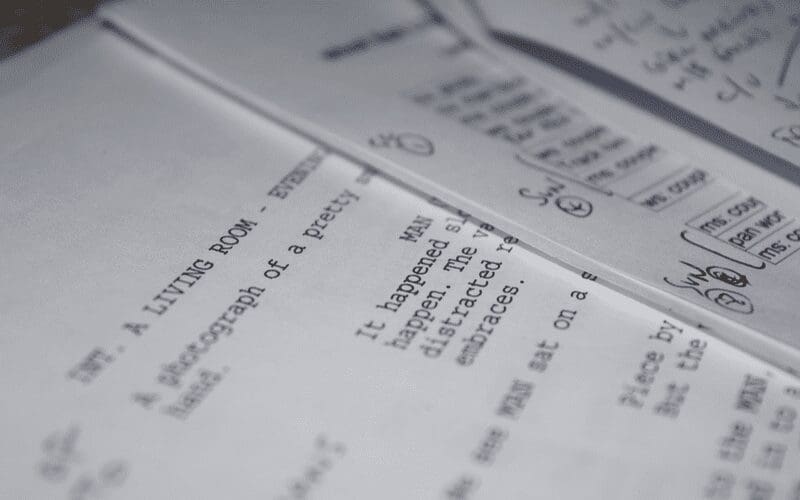
Writing a short film can be a lesson in filmmaking but how do you actually do it? We’ve broken it down into a couple of easy steps:
- Keep it simple – don’t over complicate things for yourself!
- Make sure you choose a unique concept. Pick something no one has done before – this way you’re more likely to get noticed.
- Find a twist, surprise your audience with something they didn’t see coming.
- Stick to one genre. You want your film to be easily categorised.
- Keep it short, grab in your audience and keep them without it getting boring.
- Understand script formatting. Make sure your script is clear, concise and easy to read!
How To Make A Short Film
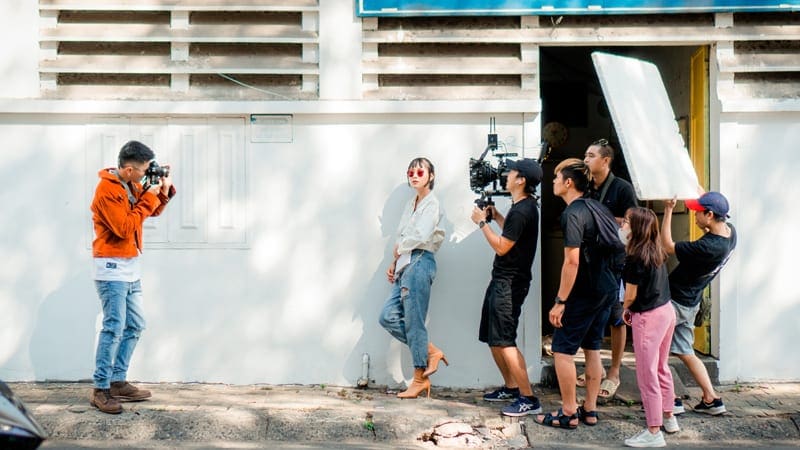
Plan Ahead
Making a short film takes time. If you’re working or studying full-time alongside your filmmaking career, you can expect the whole process from pre-production to final cut to take up to six months or a year. Short films are often made on low-budgets, which means each crew member will have to fit other work commitments into it. Don’t rush it. Good things take time.
A good rule of thumb is that one page equals a minute of screen-time, and you can reasonably create about five to six minutes of content per shooting day. So every five pages are roughly a day of work. Bear in mind this also depends on how many locations, costume changes or other time-consuming elements are in those five minutes. If the scene requires your main character to jump into a pool, for example, they will have to dry their hair between each take for continuity reasons.
Figure Out Which Role Is Right For You
Filmmaking is a team effort. Research each role to figure out where you fit best. Do you have good leadership skills? You’ll make for a great director. Do you prefer to work behind the scenes but have tons of ideas? Screenwriting might be the one for you. Is your multitasking game top-notch? You could consider a producer role.
More often than not, short films require the same person to play multiple roles. If you have written a screenplay that is particularly close to you, there’s no reason why you shouldn’t put yourself forward as the director.
Choose Or Write A Script

If you have a story in mind already, that’s great. Get the basics down first: what genre is it? How does it start and how does it end? Do you know how to write in the correct format? A screenplay is not prose! The best way to learn how to write a short film screenplay is to look at the screenplays of classic movies. These are often available to download for free and will give you a sense of how to spread out elements on the page. You can choose to purchase a screenwriting software such as Final Draft, but Celtx is a great free alternative to get a head-start.
If you don’t want to worry about screenwriting, you can search for the right script through various filmmaking networks. Post an ad on Facebook in specific film groups; use platforms like Wattpad and Shooting People; attend short film festivals and reach out to the writers whose films you liked.
Money, Money, Money
This is always the least fun aspect, but those beautiful words on the page require money to be turned into a film. So your next step is to create a budget breakdown. This is usually done by the producer. You might choose to be your own producer or to get one on board. Producers handle the organisational side of things, from networking, contracts with cast and crew and costs.
There are two fundamental things that will impact your budget. Are you paying your cast and crew a daily rate or just expenses? And what equipment are you using? Short films might not be a money-making business, but the competition is fierce nevertheless. This means that high production value is more likely to get festivals’ and audience’s attention than a film shot from your iPhone, regardless of the content. The same is valid for the crew. Though young filmmakers are often available to work for free, you might be able to score someone with significant experience by offering payment.
Where To Get Those Bucks To Make A Short Film

Now, where is the money coming from? Unless you have a stash of cash to draw from, which would be nice, you’re going to need help with financing your movie and the most common avenue is crowdfunding. You can choose between Kickstarter, GoFundMe, Indiegogo… The latter is the best for flexible budgets, meaning you will get the money even if you don’t reach the goal. Build an eye-catching page to pitch your project. You can also offer rewards for those who donate, such as their name in the credits or a film poster signed by the crew.
Choose a realistic figure and leave the donations open for as long as you can. The most critical times for raising money will be the first few days after launching and the final week. Email your friends, call that relative you haven’t spoken to in a long time, suggest a donation instead of a birthday present. Sharing on social media can help get an extra five or ten quid, but realistically most of the money will come from people who know you in real life.
Another option to try is applying for film grants. It’s not a guarantee, but it’s definitely worth a try! There are lots of film grants out there, we’ve got a full article highlighting some of the best ones and support and tips on how to secure one. Check it out here.
Cast And Crew
You will need an actor for each role and, at the very least, a director, a director of photography, a sound operator, an art director and a make up artist. The best way to find crew is through personal recommendations. This way you’ll be sure to find someone who’s professional and will pull their weight.
Alternatively, there are websites such as Shooting People and Production Hub. When shortlisting candidates, look out for a showreel and a good track record in the specific position you’re looking for.
As for casting, this is usually done by the director, writer and producer. Put an ad on casting websites like Spotlight, Backstage and Mandy. A varied showreel and a professional headshot are great signs, but it also helps when an actor takes the time to read your brief and write a cover letter about what they could bring to the role. During auditions, it’s a smart idea to test an actor’s range through improvisation. If you have more than one lead, do a chemistry test to see which pair of shortlisted actors work best together.
Find A Location
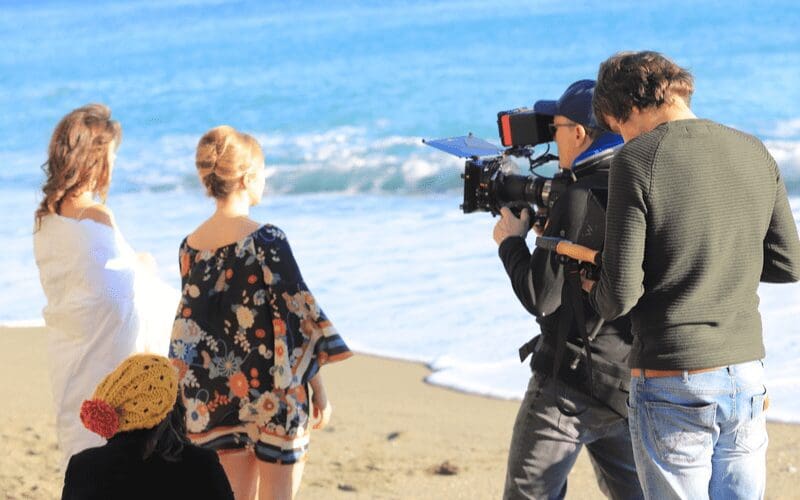
You might have more than one location, but remember that moving filming equipment is expensive. Give priority to your main location and, once it’s found, search for secondary ones in the same area. This can help cut back on transport timings and costs.
Try to avoid renting locations through agencies, as their fees can be quite expensive. Again, posting on socials or relying on word of mouth usually brings good results. Websites like TagVenue and Hirespace are also excellent resources. Make use of your connections! Do you need an office location and happen to have a friend who works in an office? You could enquire about filming there on the weekend when offices are usually shut.
It’s important to bear in mind that you don’t just need space for the shot. You need space for the camera equipment and crew, a well-lit room for actors’ make-up and ideally a green room for the crew to rest and have drinks and snacks while not on set. There are also logistics tied to the script. For example, if your film is set at night but you’re shooting during the day, a room with many windows won’t be ideal as it will require extra work to make it look dark.
Hire Camera Equipment
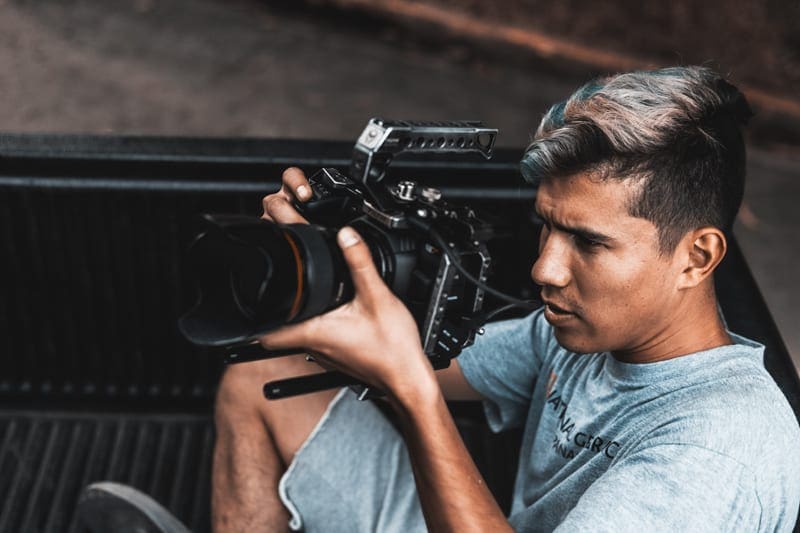
The best strategy is to have a chat with your director of photography and create a storyboard together. Once you know how many shots you need and what kind of shots they are (close-ups, wide shots, etc…), the DOP will be able to suggest what equipment they think is best. They also usually have valuable connections with rental houses. Bear in mind that renting a complex camera like an Arri Alexa might mean the DOP will need a camera assistant or focus puller.
Complete a risk assessment to evaluate possible hazards: do you have to carry the equipment up a flight of stairs? Is it going to be left unsupervised overnight? You might want to purchase equipment insurance just to put your heart at rest. Performance Film & Media is the most valid insurance for short films and will set you back about 1/3 of the equipment’s rental cost.
Shooting Time

Keep your head up as shooting days can be extremely stressful. Send out call sheets a couple of days in advance with a detailed breakdown of the day so everyone knows what to expect. Set up a comfy snack table to make your crew happy and remember to check in on the team throughout the day. Always be ready for scenes to take longer than planned and leave plenty of extra time as a contingency.
Post-Production For Your Short film
Got your footage? Time to cut. Post-production involves editing, sound mixing and colour grading. You can decide to source a person for each role or ask the editor to take care of all three, depending on how complex the work is. If you require music, beware that licenses will take a significant toll on the budget. Some alternatives can be hiring a relatively new composer, sourcing copyright-free soundtracks through Youtube or Soundcloud or asking a musician friend for help.
Music Licensing And Composition

Music is a fundamental aspect of any film, it helps tell and support the story, the narrative and builds tension, drama, enhancing scenes to improve the audience experience. It’s common that young filmmakers leave music as a post-production afterthought, but think about music from the get-go, and know what you can and can’t use from a legal aspect (licensing) or if you want to commission original score or title music to your film. If you want some free advice on the use of music in your film, then we can help you with music supervision and music licensing, get in touch with us.
Write A Treatment
These are summaries for feature films; however, you can use treatment when creating a short film to help you account for the whole film. This is a chance to monitor how your story is developing, and you are able to visualize it, thus getting rid of the things that are not working out.
Distribution
Once the cut is finalised and the director and producer are happy with the result, it’s time to decide on a release strategy.
Going down the festival circuit is the most common option as international screenings and awards will impact the prestige of the short film significantly. However, submission fees can be pricey, with no guarantee the film will be selected. Plus, it will mean that your film will have to stay private for as long as it’s being optioned for festivals.
Alternatively, you can decide to take marketing in your hands and release through a streaming platform such as Amazon Prime or Short of The Week, while marketing the film through social media and film outlets.
Time To Get Started On Your Own Short Film!
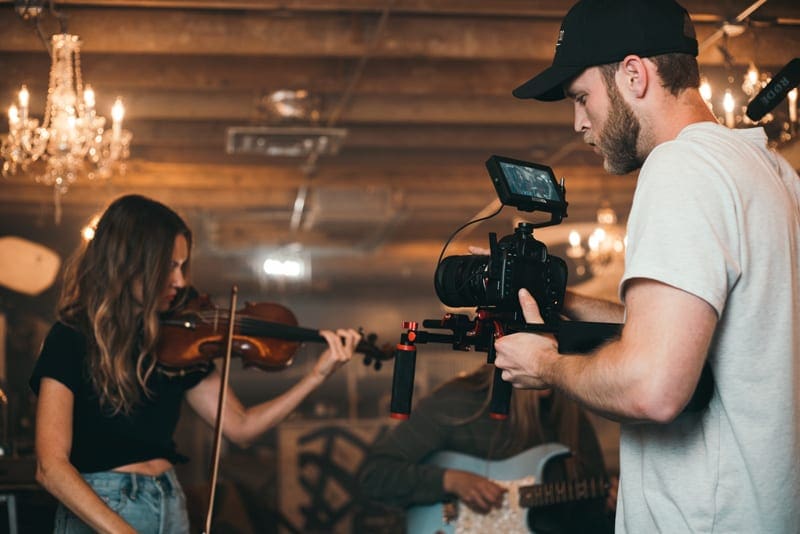
Ultimately there is no secret to making a short film. What you need is a compelling story to stand out from the crowd, a support network, great teamwork, lots of effort and a dash of luck. Most importantly, don’t be afraid to step out of your comfort zone and don’t wait for things to fall on your lap.
Now that you’ve got the basics down, it’s time to get out there and turn that story into a short film. Good luck!

